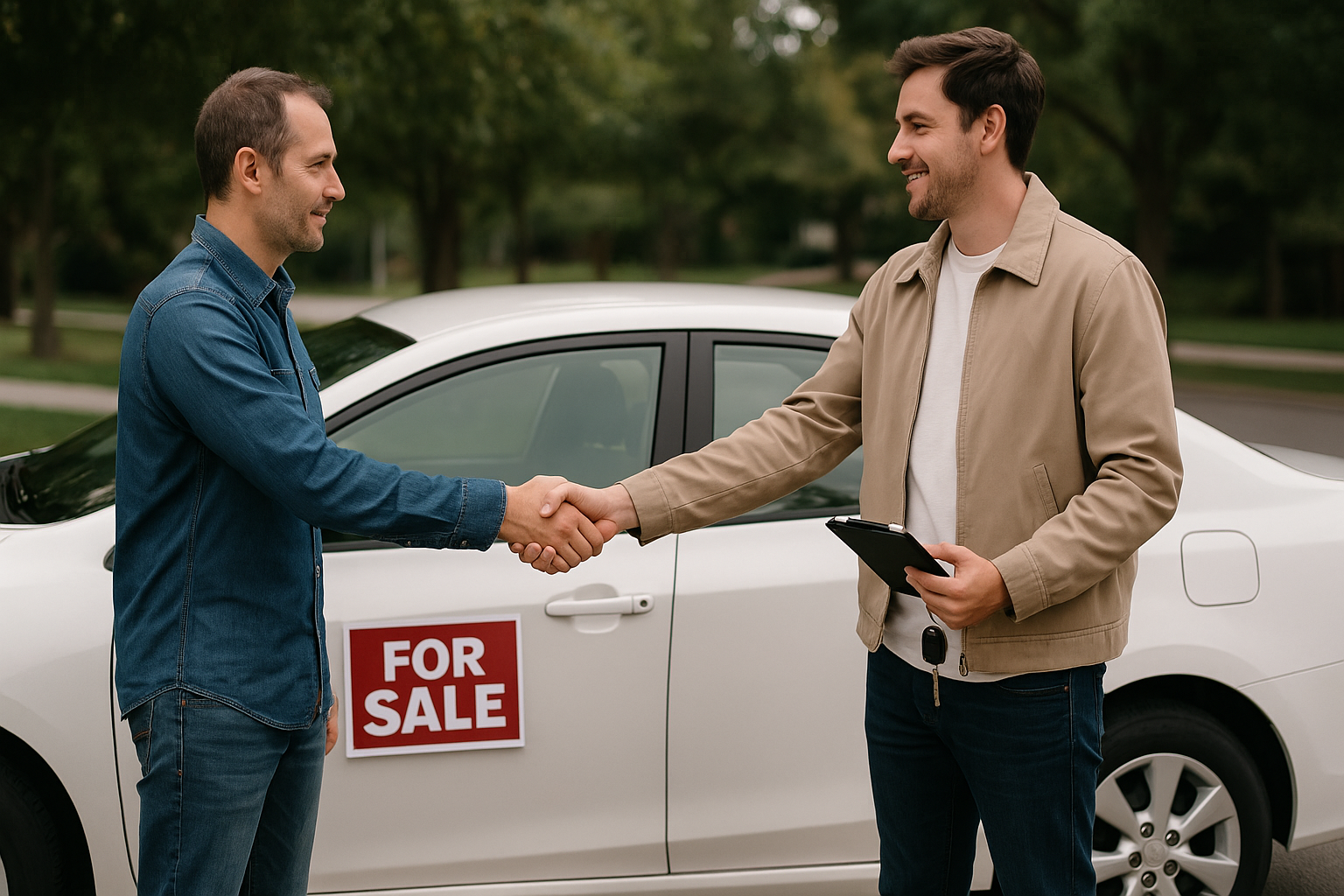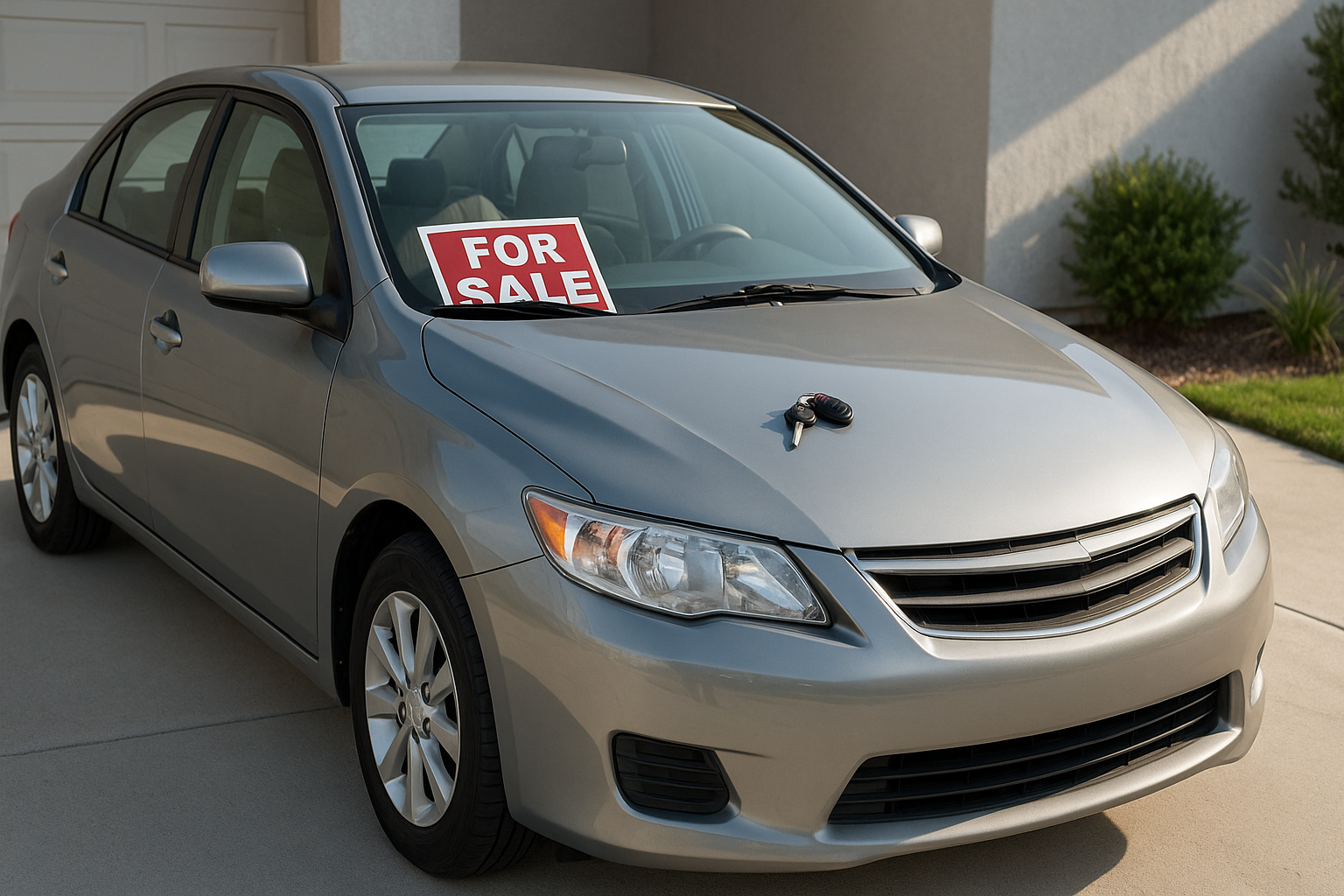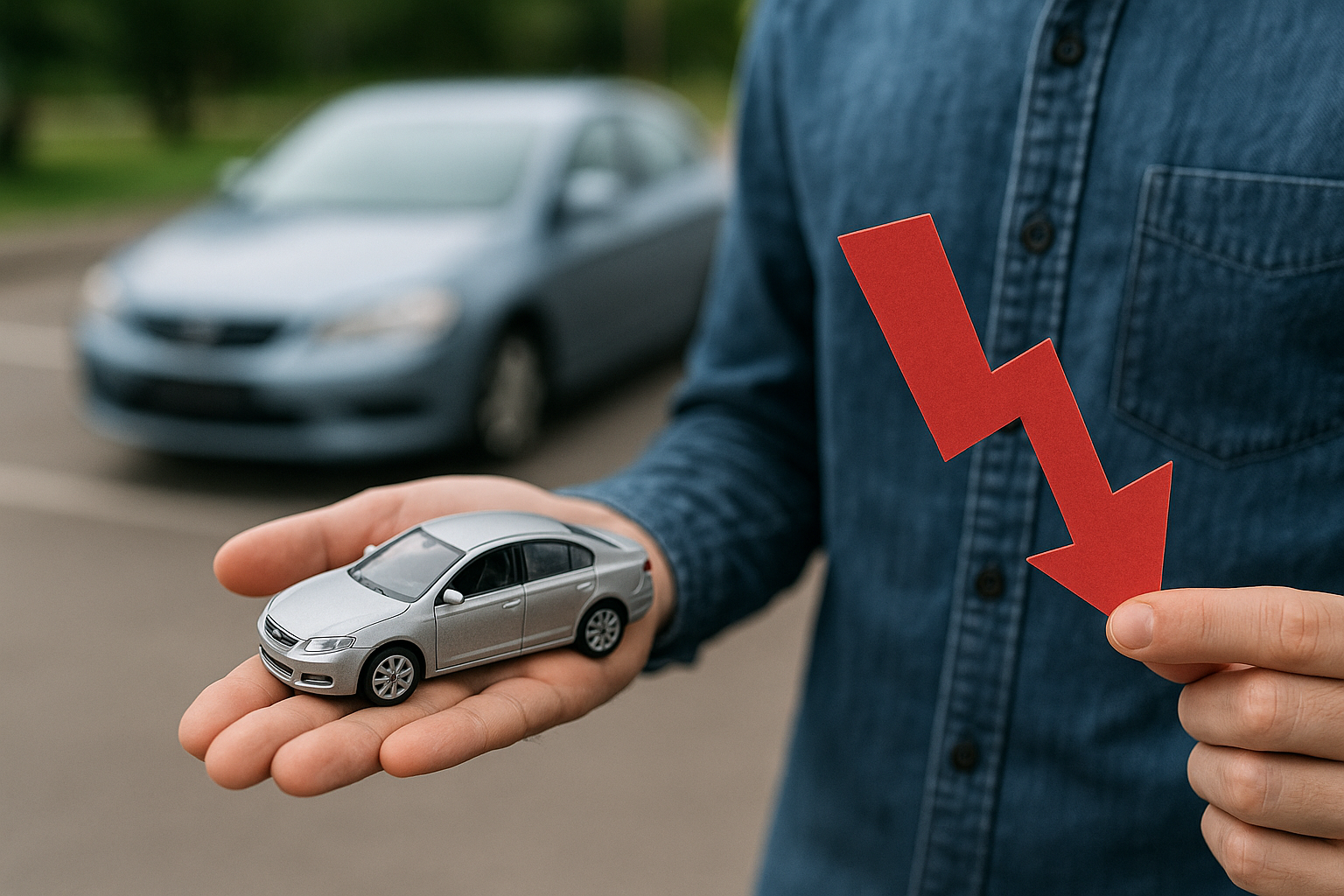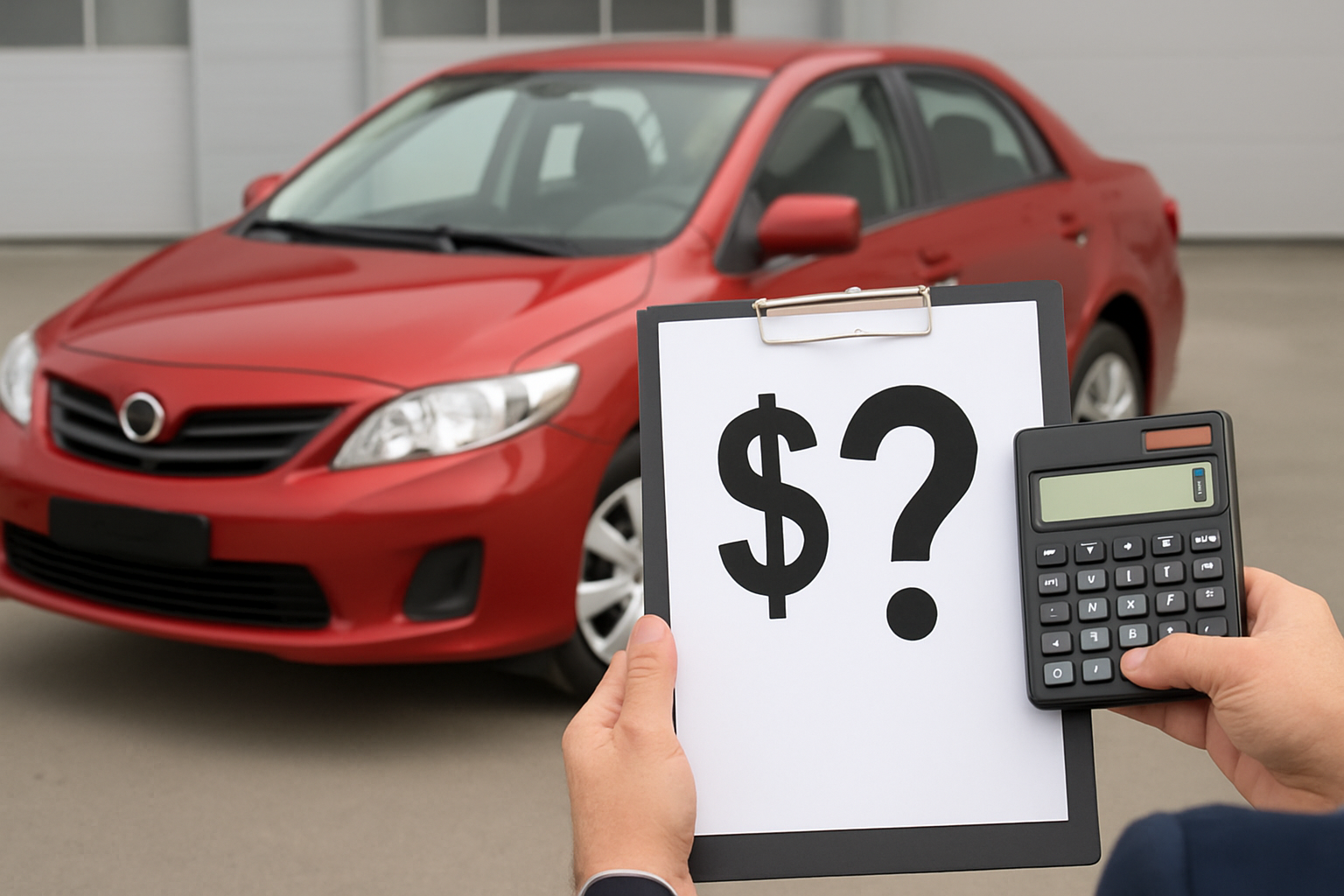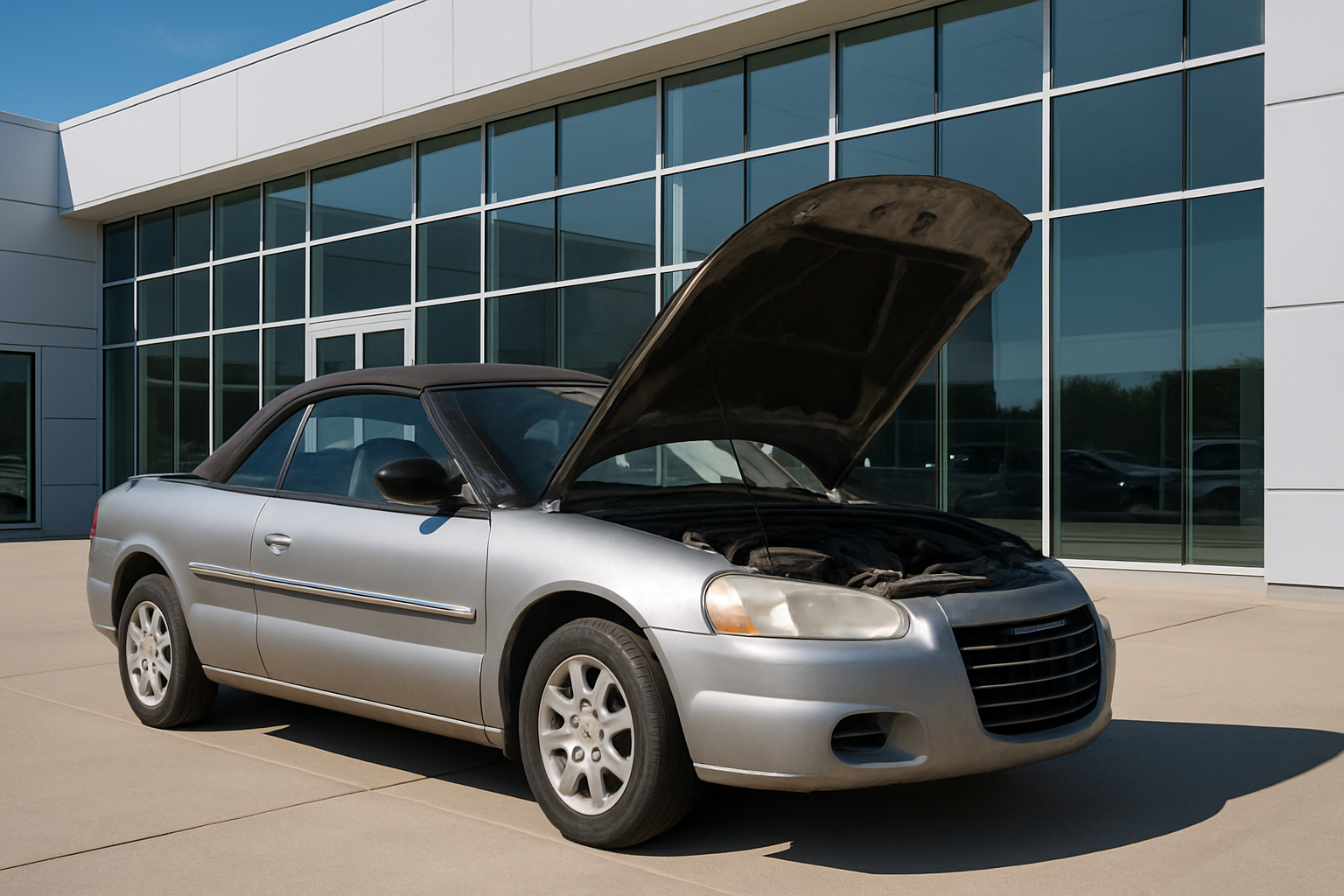Selling your car privately can be a great way to get the best value for your car and avoid any fees that a car dealership has.
However, there are also some downsides to selling your car yourself, including the greater time investment from getting the vehicle ready to sell, finding a trustworthy buyer, and keeping track of all the needed paperwork.
With that being said, there are multiple tips you should consider that will help you effectively sell your car privately.
What Do You Need to Sell Your Car?
First off, it’s important to understand what paperwork you need to sell a car. Here’s what you’ll need to have on hand:
- Title—The car’s title shows the vehicle ownership status (who owns the vehicle) and will be needed during the sales process.
- Sales Paperwork—The paperwork you received when you originally bought your vehicle will likely come in handy. Sales paperwork usually contains the best-selling features of your vehicle as well as other relevant vehicle information that a potential buyer may be interested in.
- Maintenance Records—When buying a used car, car shoppers often want to ensure that the car has had regular maintenance upkeep and proof that the vehicle is in good condition. Having your service records on hand can help you prove the condition of the car and give the potential buyer some peace of mind.
- Other Important Documents—Other documents, such as a vehicle history report, can be useful to show the car’s history, especially if it has been in any accidents.
Considering the Market Value
When considering the asking price of your used car, it’s best to first conduct research on other similar motor vehicles for sale of the same model, year, mileage, and condition. This will help you get a better idea of how much your car is worth and what is the best price you can sell it for.
It can also be useful to get your mechanic's professional assessment of the car. A mechanic can help determine your car’s condition and even point out problems with your car that should be fixed.
Keep in mind that if the car’s year is below a certain point, parts may be more difficult to find, which will impact your vehicle’s resale value and discourage potential buyers due to higher auto insurance premiums.
Another good resource is online valuation tools that can compare your vehicle to other used cars online and give you the approximate value of your vehicle.
If you modify your car in any way, then it is best to take your modifications into account, as they could increase the current market value of your vehicle. Low mileage and active warranty information can also increase the value of your car in the eyes of a private buyer.
The good news is that you are ultimately in control of your car’s sales price, and as a private seller, you can negotiate with the prospective buyer until a fair purchase price is agreed upon.
Preparing a Used Car for Sale
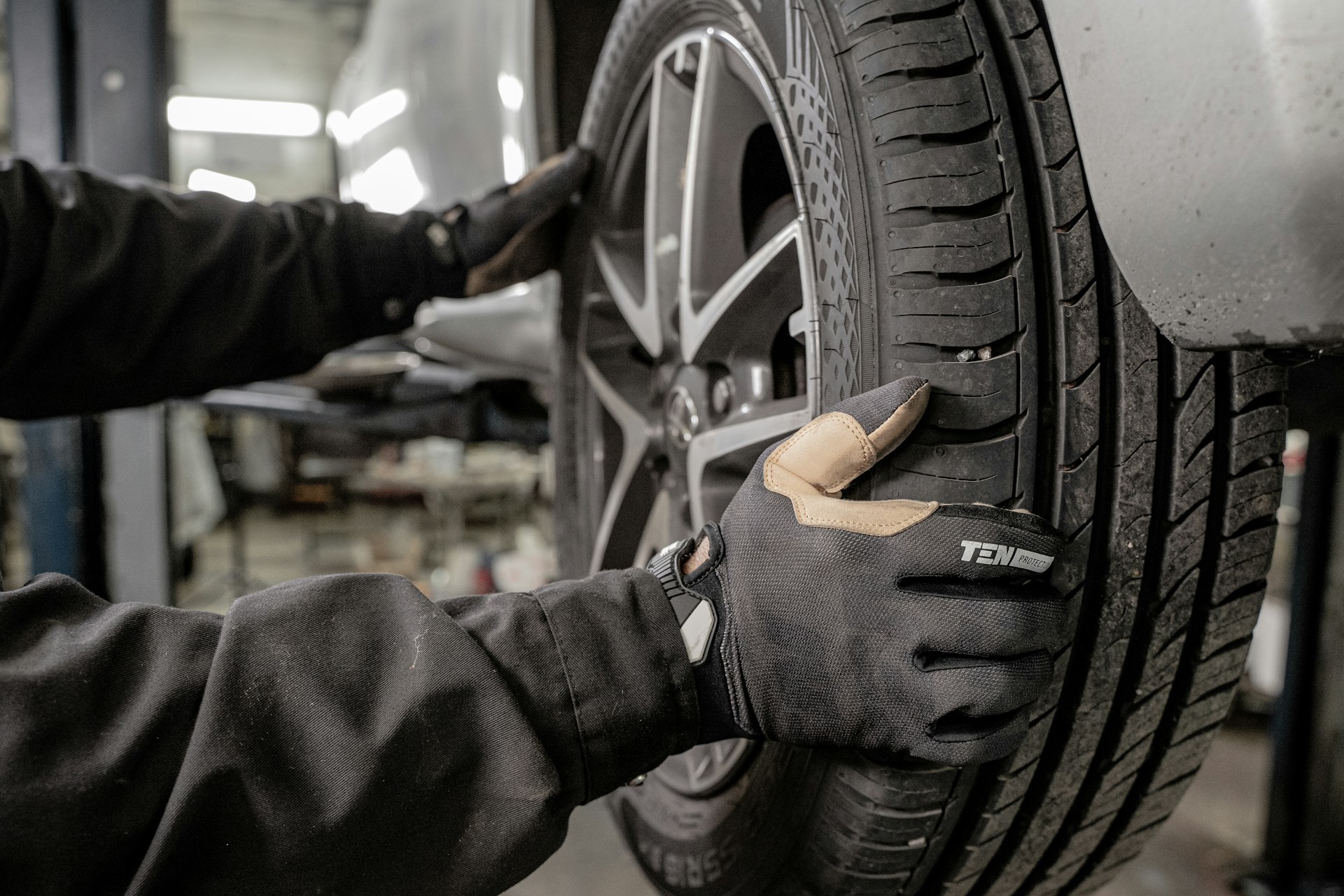
No one wants to buy a broken or dirty product, and the same goes for used cars. Even a simple cleaning could increase your car’s value in the eyes of the seller. With that being said, here are some tips on how to prepare your used car to sell:
- Address Mechanical Issues—If there are any major mechanical issues, it is best to have them fixed beforehand as most prospective buyers, even at a reduced price, will not want to buy a car with major mechanical issues.
- Have Your Car Detailed—Having your vehicle detailed will give it a new car “feel” and ensure that the car’s interior is in good condition.
- Eliminate Any Odors—Any odors from dogs, smoke, food, etc. can make the car less desirable. It is best to eliminate these odors, which can often be done by shampooing the carpets and wiping down all the interior surfaces of the vehicle. There are also products specifically designed to eliminate car odors that you can try.
- Remove Any Stickers—Stickers of your favorite sports team, charity, and anything else should be removed. Oftentimes, a plastic scraper and some water are enough to remove most stickers placed on windows. There are also adhesive removers designed to help remove stickers from a car.
- Replace Worn Down Windshield Wipers—Simple maintenance changes can make your car feel more new and well-taken care of. One such change is replacing worn-down windshield wipers.
- Check the Fluid Levels—Car buyers often check the fluid levels in the vehicle to ensure that everything is in working order. Topping off the oil and even the coolant can show that your car is in good running condition.
- Consider Replacing Worn-Down Tires—Buyers often point out worn-down tires as a way to negotiate the asking price down. Replacing your car’s tires can be a great way to avoid that possibility. Even replacing your car's tires with used ones with a better trim on them could be worthwhile.
Ultimately, it is best to remember that most car shoppers won’t buy a car outright without first looking over the car and negotiating the price. So, it’s best to make sure your vehicle is in good condition and ready to be sold.
Where to Sell Your Car?
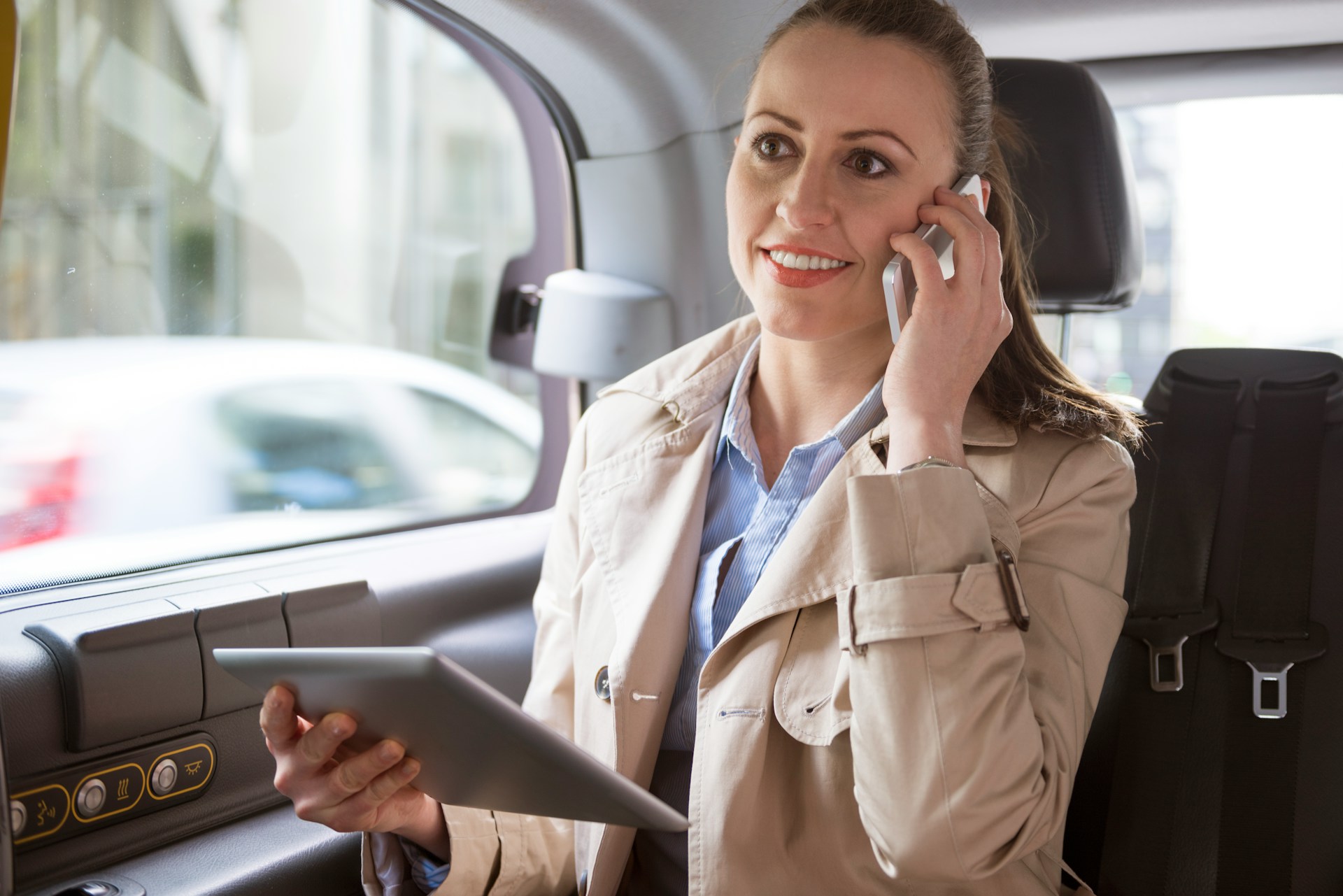
There are many great online marketplaces where you list your car for sale.
For those wanting to sell a salvage car, online auctions can be a good option. There are also multiple specialty sites for those selling classic or collectible cars.
Apart from the online world, local used car auctions can be a good place to go.
You can also put a “For Sale” sign on your vehicle with your number so that when you drive around, interested buyers can know that your car is for sale.
Selling Your Car Safely
When selling a car privately, it’s important to protect yourself against scams or other problems by using reliable payment options, keeping track of paperwork, and ensuring safe test drives.
Use Reliable Payment Options
For large purchases, not every form of payment is reliable. Personal checks, for example, can bounce or even be forged. So, you’ll want to make sure to only accept reliable forms of payment, including:
- Escrow Service—Using an escrow service is a great way to ensure that you receive your payment. This method involves a third party that holds onto and then releases the payment once the transaction is completed.
- Cashier’s Check—A cashier’s check is backed by the bank and, therefore, won’t bounce. However, it can be forged, so it’s important to verify the check at the bank before accepting it.
- Cash—Cash is always a reliable payment method, though it’s always risky to have too much cash on hand. So, it is best to make a cash transaction in a secure location such as a bank.
Keep Track of Paperwork
As a private seller, you’re responsible for keeping track of all the paperwork involved in the vehicle sale, such as:
- Bill of Sale—The bill of sale provides proof of the sale between you and the new owner, which may be needed for tax purposes. The bill of sale will also be needed if any disputes about the vehicle arise after the sale.
- Title Transfer—The vehicle title transfer documents the transfer of ownership and shows that you are no longer responsible for the vehicle.
- Release of Liability—While not always required, a release of liability document releases you of all responsibility for the car. It shows that the new owner has taken responsibility for the car.
- License Plate Receipt—You’ll want to remove your license plates before selling your vehicle. Some states require you to turn in your license plate to the Department of Motor Vehicles (DMV) to cancel the vehicle registration in your name—at which point you will receive a receipt from the DMV.
Ensure Safe Test Drives
Most potential buyers will want to test drive your car to ensure that everything is in good working order. When allowing a test drive, you’ll want to first check to see if your insurance carrier offers an auto insurance policy that covers other drivers.
During the test drive, it’s best to ride along with the buyer and have a predefined route. For safety, it’s always a good idea to bring a friend or family member along.
Another helpful precaution is to check the buyer’s driver’s license to make sure it is up to date and to ensure that the buyer is legally allowed to test drive your car.
Tips and Q&A
-
Should I repair my car before selling it?
If you want to sell a car quickly, then you can choose to sell it car in “as is” condition at a significantly reduced rate. However, if you want to get the most out of your car, it is usually best to repair all major issues before selling it.
However, it should be noted that some major repairs may end up costing more than the car itself; in those cases, it is best to sell your car in “as is” condition and be upfront about your car’s condition during a private car sale.
-
Is it safe to accept a cashier's check when selling a car?
Cashier’s checks can be forged, so it is not a good option if you have no way of verifying the check’s authenticity.
However, if you can go to the bank or credit union where the check is from, then you can verify it before the sale.
-
What to ask for when someone test-drives your car?
It is best to ask for the potential buyer’s license to make sure that the buyer is legally allowed to drive.

